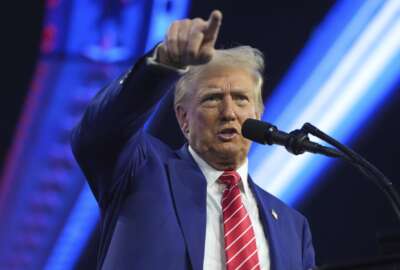NFL players’ lawsuit vs. video-game maker allowed to advance
By SUDHIN THANAWALA Associated Press SAN FRANCISCO (AP) — A federal appeals court gave the green light Tuesday to a lawsuit by former NFL players against...
By SUDHIN THANAWALA
Associated Press
SAN FRANCISCO (AP) — A federal appeals court gave the green light Tuesday to a lawsuit by former NFL players against video-game maker Electronic Arts over the use of their avatars in the company’s Madden NFL series.
The 9th U.S. Circuit Court of Appeals sided with a district court that rejected Electronic Arts’ attempt to have the lawsuit thrown out. The 9th Circuit said EA was not likely to prevail on its argument that its use of the former players’ likenesses was incidental and therefore protected by the First Amendment.
“We hold EA’s use of the former players’ likenesses is not incidental because it is central to EA’s main commercial purpose – to create a realistic virtual simulation of football games involving current and former NFL teams,” Circuit Judge Raymond Fisher wrote in the opinion.
The players, including former Los Angeles Rams quarterback Vince Ferragamo, said the Madden NFL game had players with their exact characteristics, but EA had not obtained their permission to use the figures.
Redwood City, California-based Electronic Arts said in a statement that it was disappointed by the ruling. “We believe in the First Amendment right to create expressive works – in any form – that relate to real-life people and events, and will seek further court review to protect it,” the company said.
The 9th Circuit ruled against EA in 2013 in a similar lawsuit brought by former Arizona State University quarterback Sam Keller over the company’s use of college athletes’ likenesses without compensation.
The court, which allowed the lawsuit to continue, concluded that the company did little to transform the avatars into works of art. Electronic Arts agreed last year to a $40 million settlement of the allegations by Keller and other college athletes.
In Tuesday’s ruling, the court reached the same conclusion, saying EA had done little to transform the players’ likenesses in Madden NFL. It rejected other arguments by EA as well.
“Like NCAA Football, Madden NFL replicates players’ physical characteristics and allows users to manipulate them in the performance of the same activity for which they are known in real life – playing football for an NFL team,” Fisher wrote.
Copyright 2015 The Associated Press. All rights reserved. This material may not be published, broadcast, rewritten or redistributed.
Copyright © 2024 The Associated Press. All rights reserved. This website is not intended for users located within the European Economic Area.






